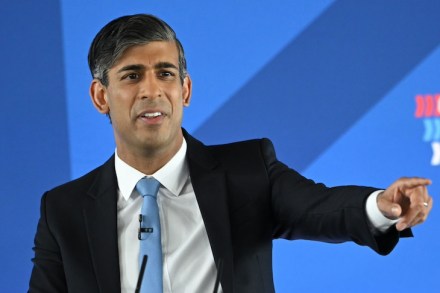Why Rishi Sunak can’t weaponise the ECHR
One of the major themes of the current election campaign is the attempt by Rishi Sunak to draw a dividing line between the Tories and Labour on the issue of immigration, particularly when it comes to the Rwanda scheme. Today, the Conservative party sought to highlight the issue in its manifesto. The manifesto claims a Conservative government would: ‘stop the boats by removing illegal migrants to Rwanda’, ‘stop illegal migrants bringing spurious legal challenges’ and ‘work with other countries to rewrite asylum treaties’. It also repeated a slogan that Sunak had previously trailed at the first televised debate with Keir Starmer that ‘if we are forced to choose between our security




















